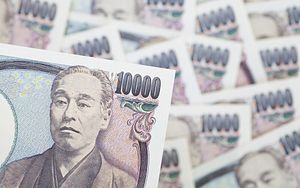On June 23, British voters signaled their interest in leaving the European Union. The Brexit vote sent the Japanese yen shooting up in value, as risk averse investors turned to this traditionally “safe” currency. Japanese Prime Minister Shinzo Abe held an emergency meeting on Monday with the Bank of Japan (BOJ) and Ministry of Finance (MOF). At the meeting, he gave instructions for policymakers “continue to work toward market stability.”
Necessary steps could include currency intervention – selling more yen. Selling yen will increase the supply, and help bring the price of yen back down after the surge in demand. A more expensive yen is damaging to Japan – potentially slowing economic growth – because it means exports will become more expensive, and potential importers may turn to other producers. A higher yen flies in the face of Abenomics, which has been a centerpiece of the government’s economic policies.
However, currency intervention would not be without international political consequences, as it has long been frowned upon. If Japan goes too far, it could trigger what is colloquially known as a “currency war,” with different economies trying to increase their exports by depreciating their currencies. Abe at least is cognizant of the international context he is working in, as he emphasized the need to keep in touch with other G7 economies in the same meeting.
In addition to instructing the BOJ to ensure markets remain liquid, Abe’s government is also reportedly considering a stimulus package worth more than 10 trillion yen ($98 billion), including provisions to stimulate consumer spending, help with child care support, and support infrastructure projects. The scale of the stimulus package will depend on how much the Brexit-induced yen appreciation affects Japan’s economy. Discussions of the package will begin in detail after the Upper House elections on July 10 and be implemented in fall. If the stimulus surpasses 10 trillion yen, it will be the first time since January 2013’s 10.3 trillion yen package – when Abe had just come back to power and started his Abenomics agenda.
Politically speaking, Brexit will likely help Abe in the Upper House. In times of uncertainty, voters are likely to flock to the ruling party, the party of stability. Furthermore, Abe can blame Brexit for the economic slowdown that Japan experiences and will continue to experience.
But the political victory in July might turn sour unless Japan’s economy quickly stabilizes. Abe and the ruling party will, again, be entrusted with the stewardship of Japan’s economy, but it is a heavy responsibility – with plenty of opportunities to receive both credit and blame – to be at the helm in such trying times.

































